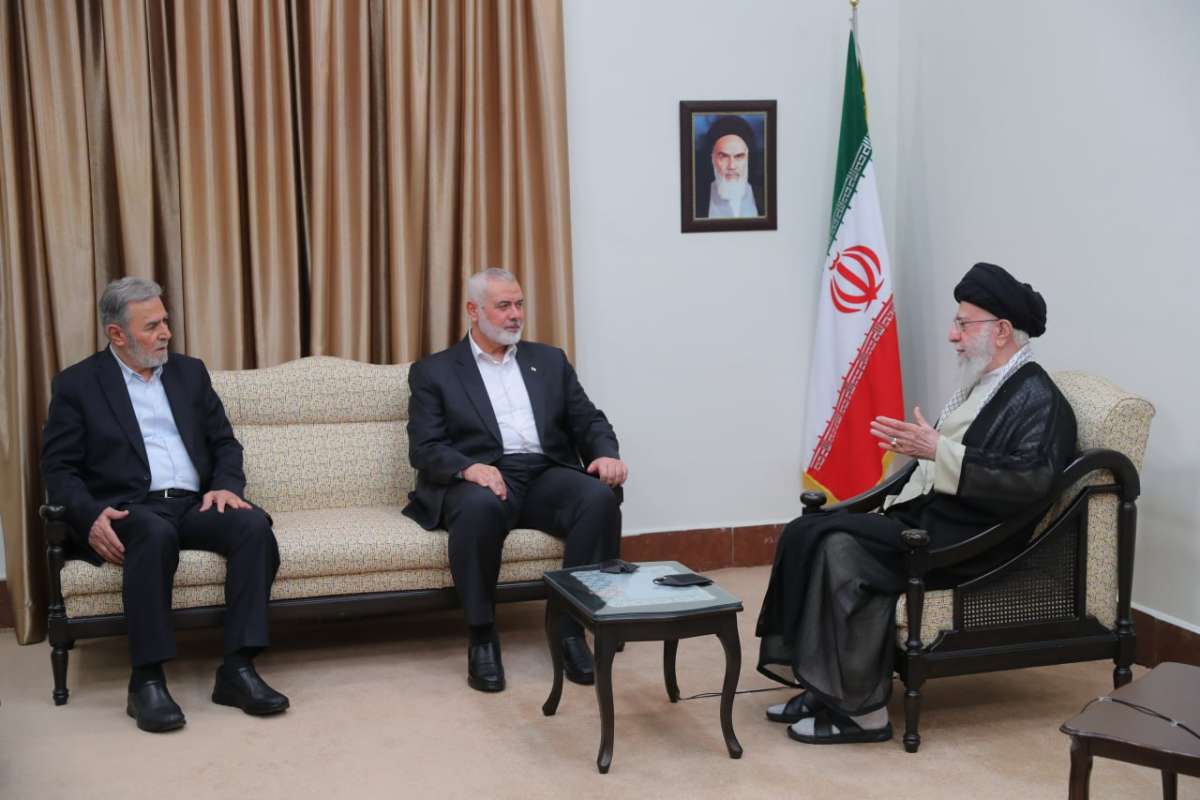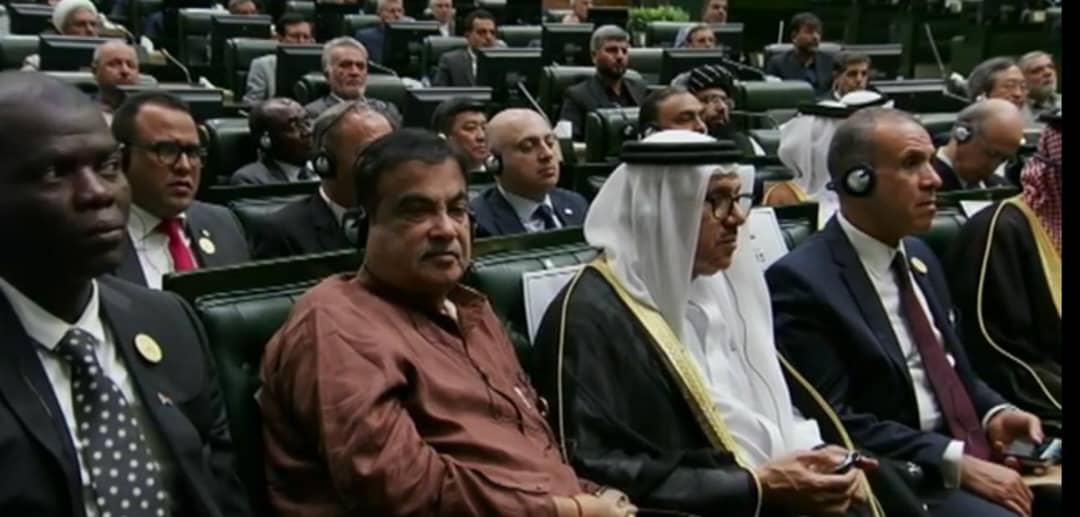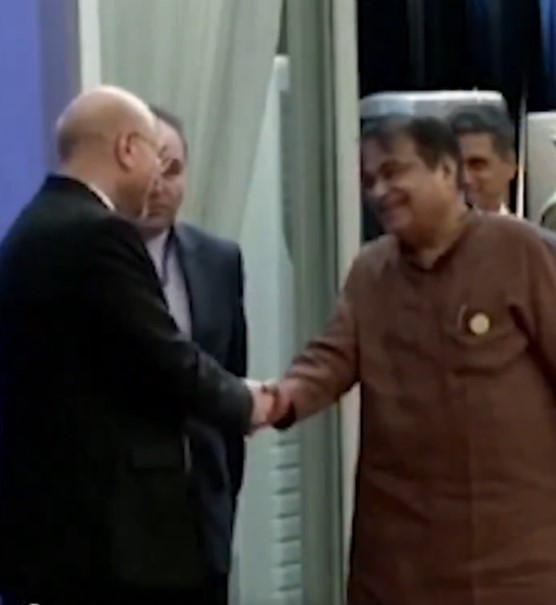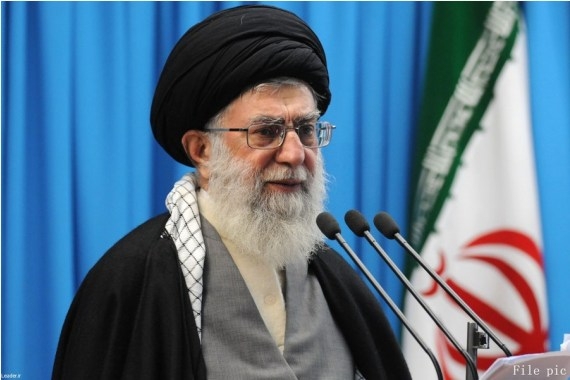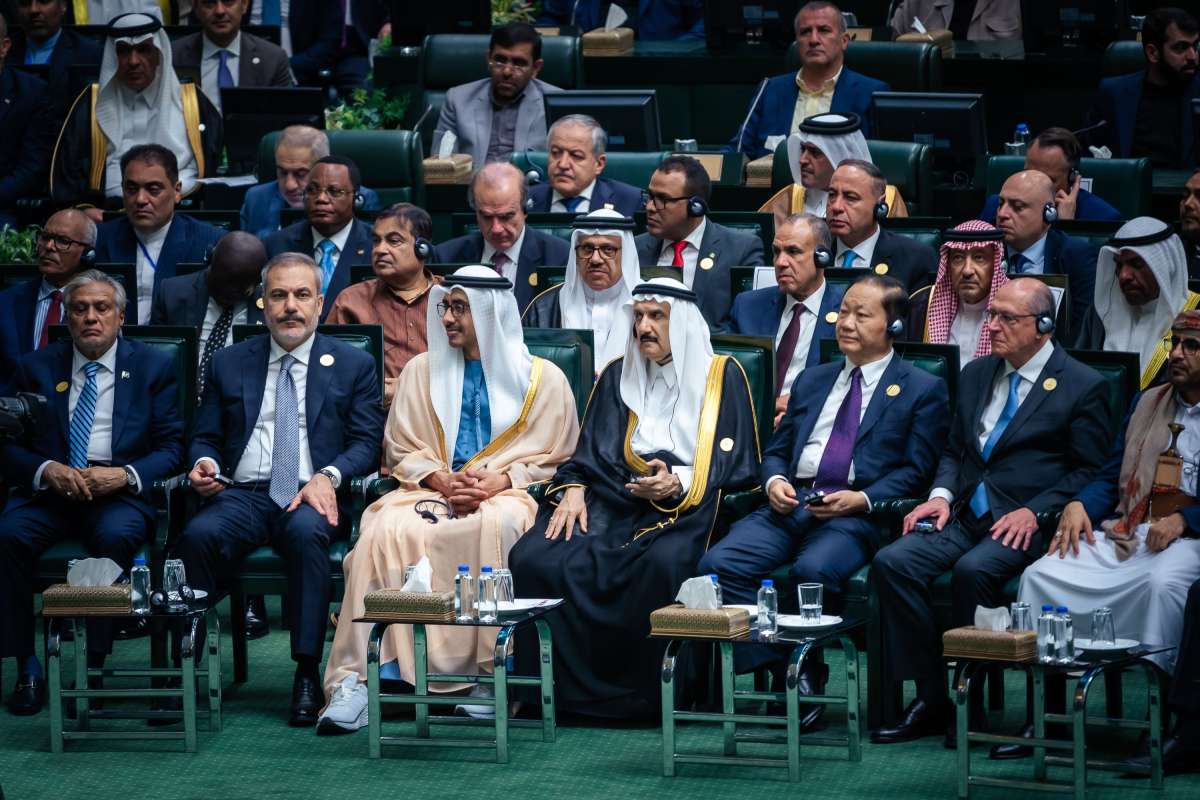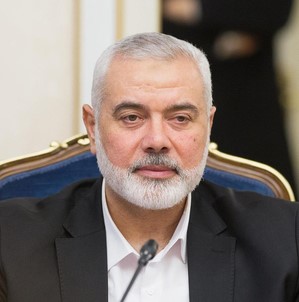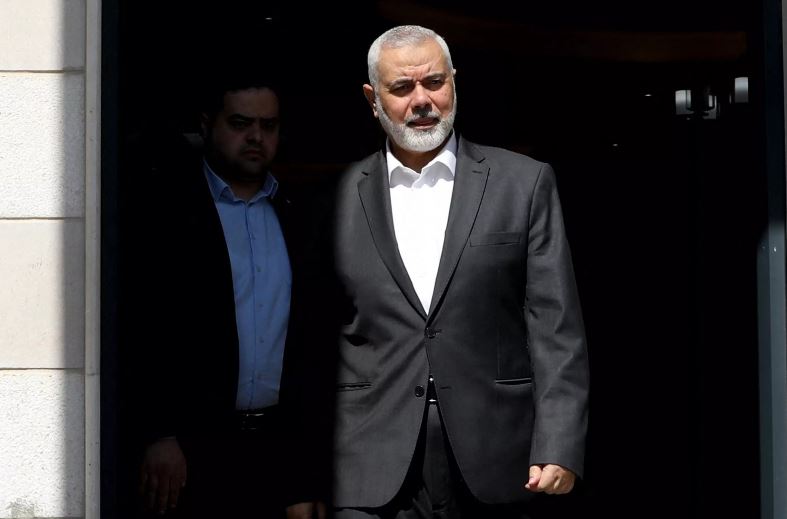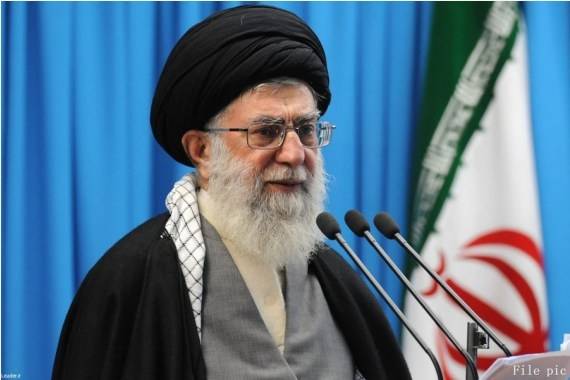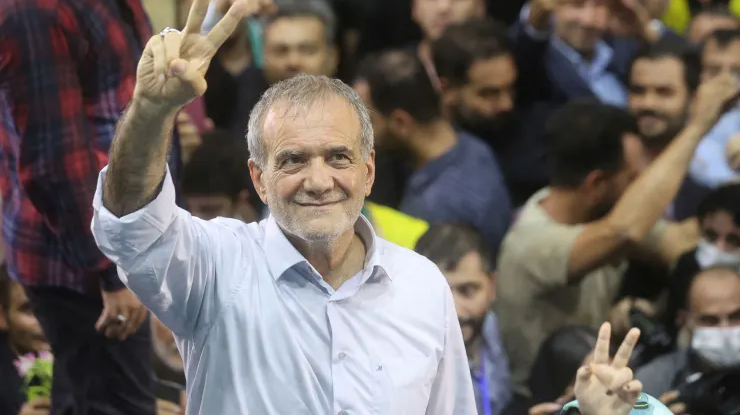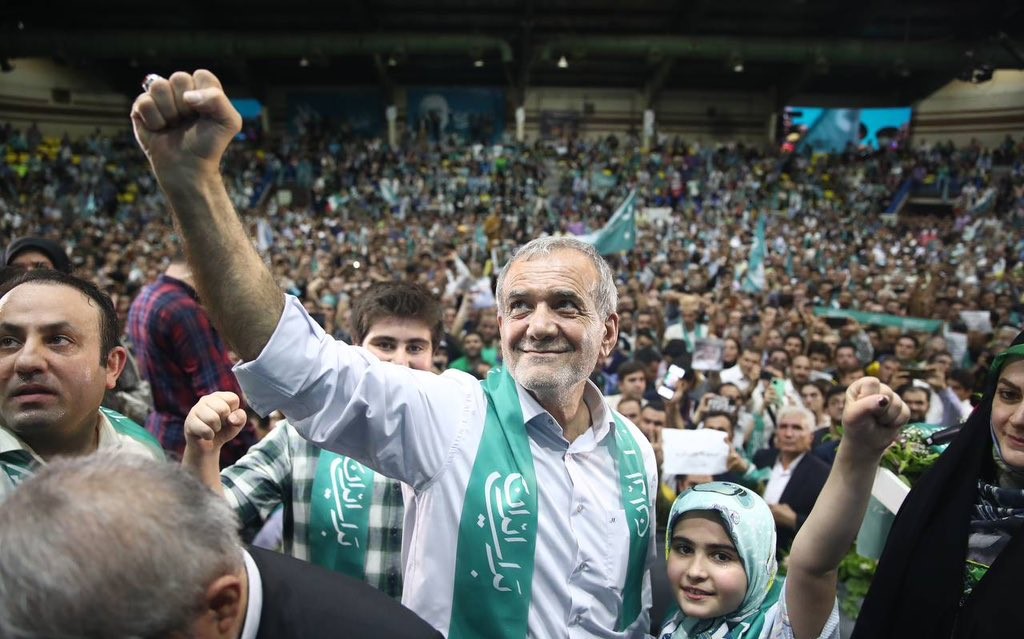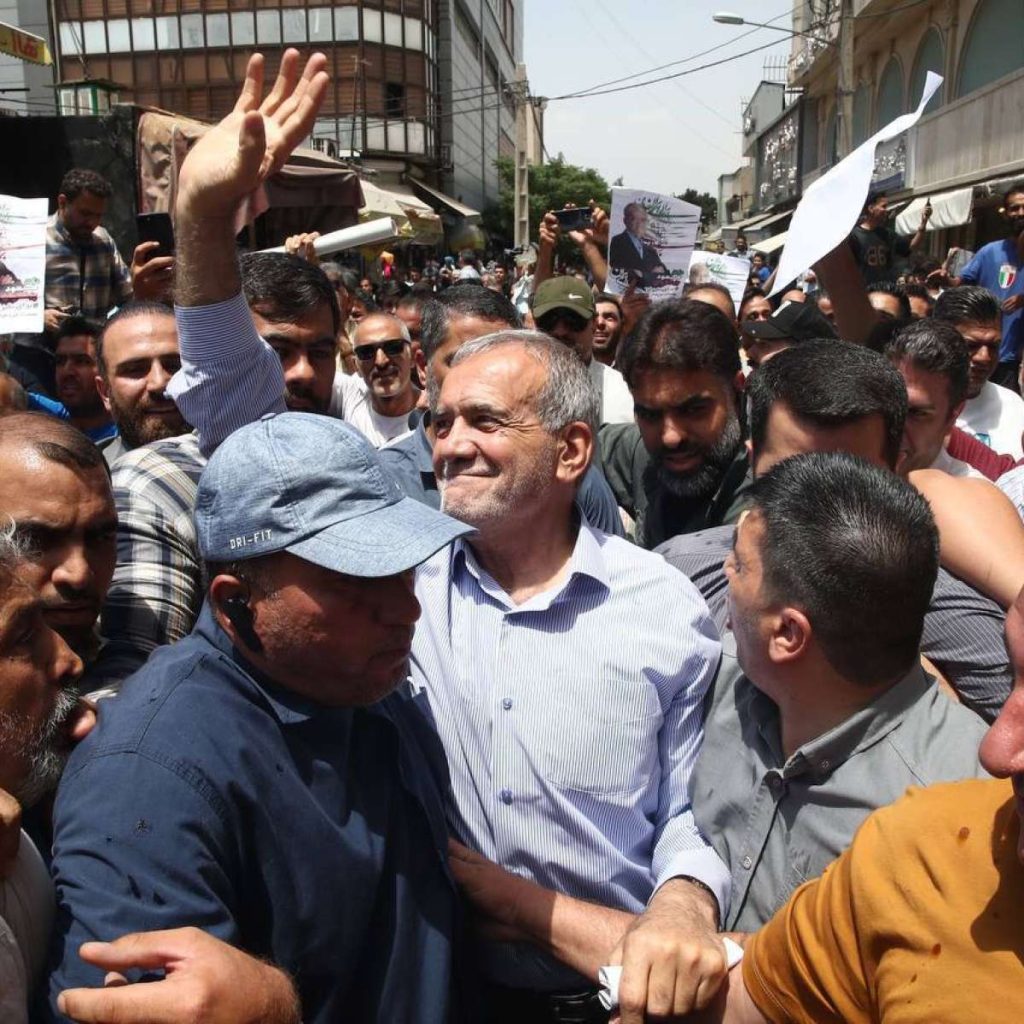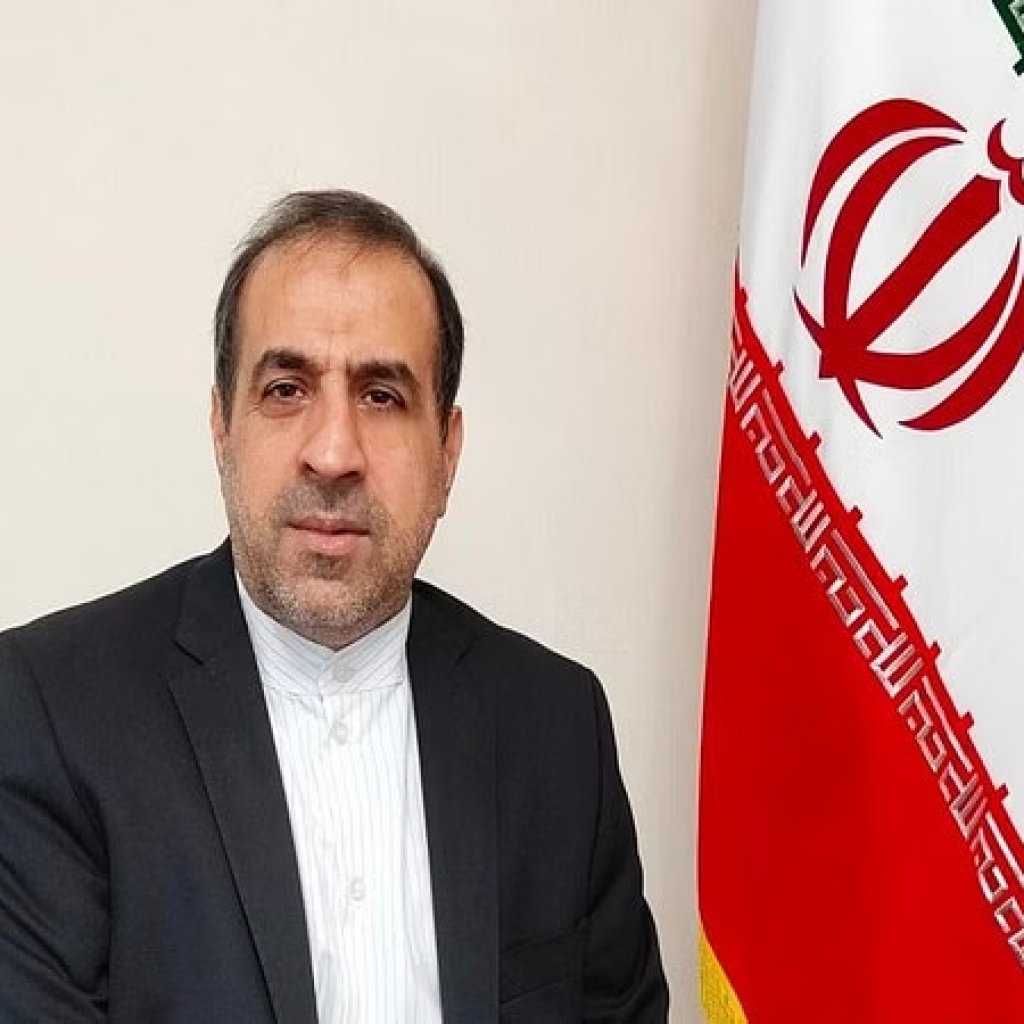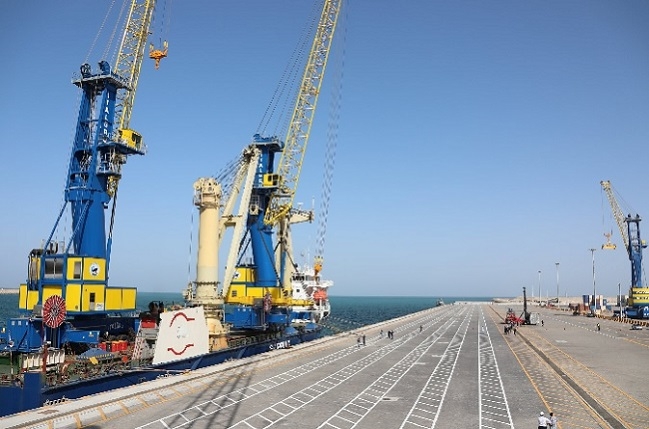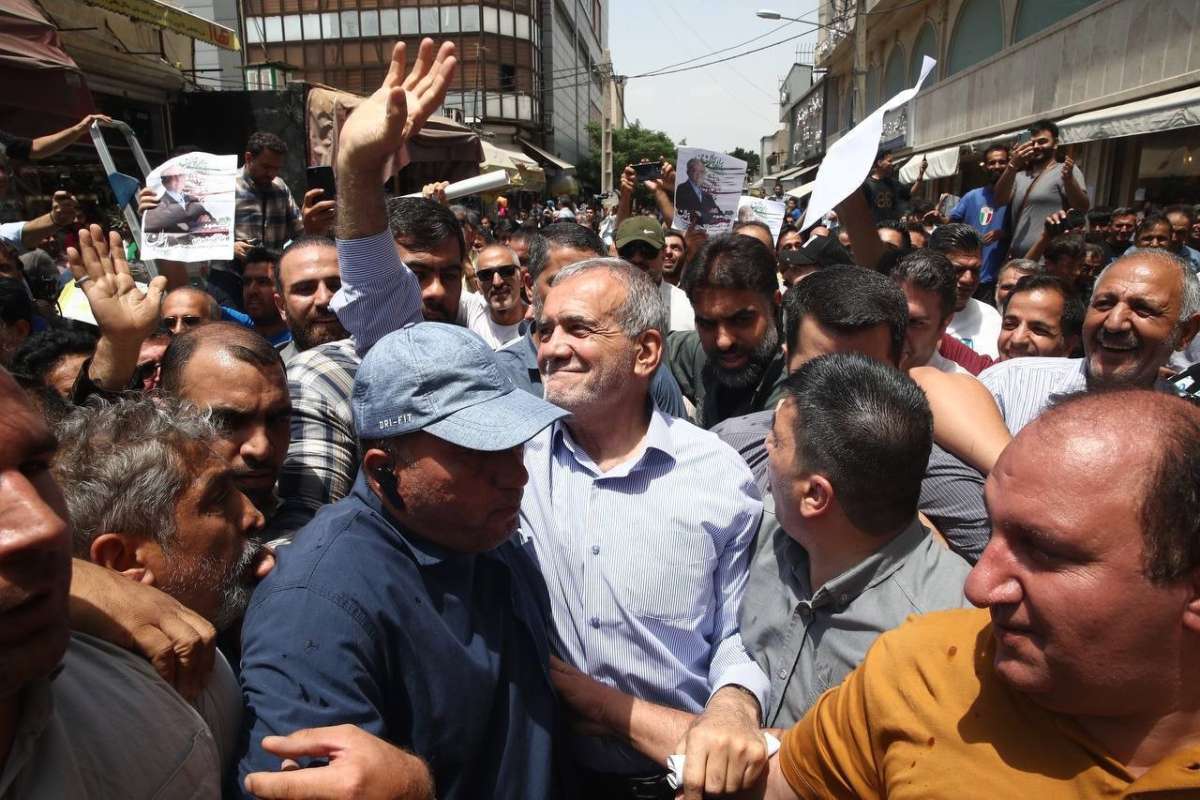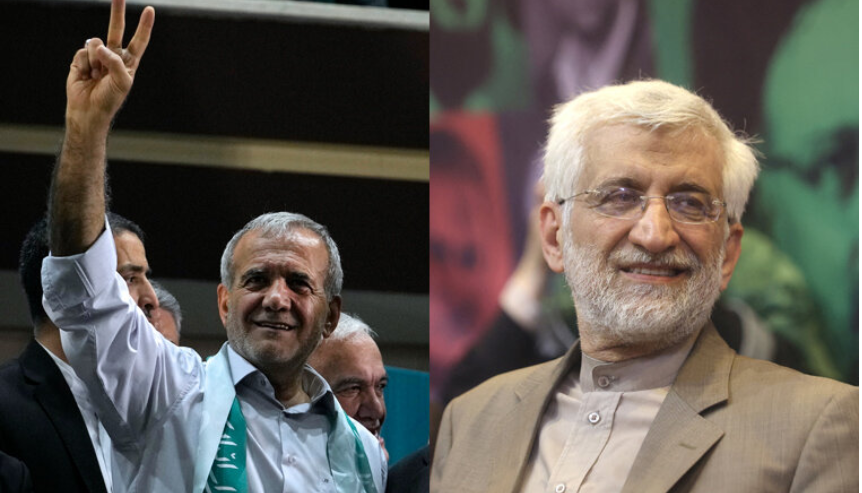Tehran sees retaliation as necessary for both avenging the killing of Haniyeh but also as deterrence against Israel killing other powerful enemies…reports Asian Lite News
Iran’s supreme leader, Ayatollah Ali Khamenei, has ordered Iran to strike Israel directly, in retaliation for the killing of Hamas leader Ismail Haniyeh in Tehran, New York Times reported, citing three Iranian officials, briefed on the order, including two members of the Revolutionary Guards.
Khamenei gave the order at an emergency meeting of Iran’s Supreme National Security Council on Wednesday morning, shortly after Iran announced that Haniyeh had been killed.
Iran and Hamas have accused Israel of the assassination. Israel, which is at war with Hamas in the Gaza Strip, has neither acknowledged nor denied killing Haniyeh, who was in Tehran for the inauguration of Iran’s new president.
Notably, Israel has a long history of killing enemies abroad, including Iranian nuclear scientists and military commanders, according to the NYT.
Through almost 10 months of war in Gaza, Iran has tried to strike a balance, putting pressure on Israel with sharply increased attacks by its allies and proxy forces in the region, while avoiding an all-out war between the two nations.
In its biggest and most overt attack on Israel, Iran launched hundreds of missiles and drones in April in retaliation for an Israeli strike on its embassy compound that killed several Iranian military commanders in the Syrian capital of Damascus.
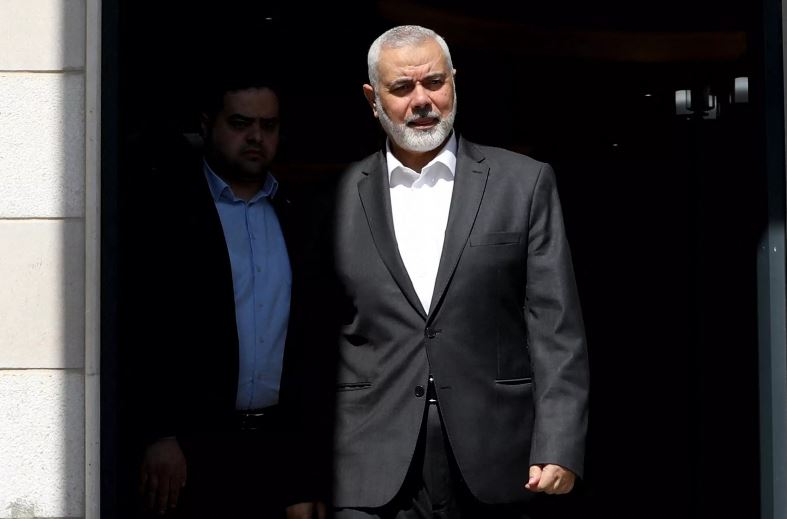
“Now it is unclear how forcefully Iran will respond, and whether it will once again calibrate its attack to steer clear of escalation. Iranian military commanders are considering another combination attack of drones and missiles on military targets in the vicinity of Tel Aviv and Haifa, but would make a point of avoiding strikes on civilian targets,” the Iranian officials said.
One option under consideration is a coordinated attack from Iran and other fronts where it has allied forces, including Yemen, Syria and Iraq, for maximum effect, they added.
Khamenei, who has the last word on all state matters and is also the commander in chief of the armed forces, instructed military commanders from the Revolutionary Guards and the army to prepare plans for both an attack and a defence in case the war expands and Israel or the US strike Iran, the officials said.
In his public statement about Haniyeh’s death, Khamenei signalled that Iran would retaliate directly, saying, “we see avenging his blood our duty,” because it happened on the territory of the Islamic Republic. He said Israel had set the stage for receiving “a severe punishment,” New York Times reported.
Other Iranian officials, including the newly elected president, Masoud Pezeshkian, the foreign ministry, the Guards and Iran’s mission to the UN, also said openly that Iran would retaliate against Israel and that it had a right to defend itself against a transgression on its sovereignty.
Iran and the regional forces it backs — Hamas, Hezbollah in Lebanon, the Houthis in Yemen and multiple militias in Iraq — form what they call the “axis of resistance.”
Leaders of those groups were in Tehran for the inauguration of Pezeshkian on Tuesday.
Haniyeh was assassinated at about 2 am (local time), after attending the ceremony and meeting with Khamenei. The killing shocked Iranian officials, who described it as crossing red lines.
According to the NYT, it was a humiliating security breach for Iran, which is eager to project strength but has been unable to prevent Israel from carrying out covert operations on its soil. The embarrassment was compounded by Haniyeh’s prominence, the presence of other allies, and that he was attacked at a highly secure Revolutionary Guards guesthouse on a day of heightened security in the capital.
It further reported citing analysts that Tehran sees retaliation as necessary for both avenging the killing of Haniyeh but also as deterrence against Israel killing other powerful enemies, like Hezbollah leader Hassan Nasrallah, or General Ismail Qaani, the commander of the Quds Forces who oversees the militant groups outside Iran.
“Iran likely believes it has no choice other than retaliating to deter further Israeli attacks, defend its sovereignty, and preserve its credibility in the eyes of its regional partners,” said Ali Vaez, the Iran director of the International Crisis Group.
IDF braces for retaliation
Israel Defence Forces (IDF) have geared up for any Iranian assault on Israel after the assassination of Hamas leader Ismail Haniyeh in Tehran on Wednesday morning.
Sources in Israel’s Defence Minister’s office told IANS that after the statement of Iran’s Supreme leader Ali Khamenei about a retaliatory attack on Israel, the IDF has prepared itself for any eventuality.
It said that that according to its intelligence reports, there could be a few strikes by Iran either directly or through its proxies, and added that Israel was prepared for it.
The Israel Security Council, in its urgent meeting on Wednesday, has ordered the strengthening of its military base in Tel Aviv and Haifa following the open threat by Khamenei.
UNSC urges restraint
The United Nations Security Council has urged for urgent diplomatic efforts to “change the trajectory” and seek a path towards regional peace and stability amid rising tensions in West Asia following the recent killings of Hamas leader Ismail Haniyeh and Hezbollah’s military commander Fuad Shukr.
“The UN Security Council is holding an emergency meeting to discuss alarming developments in the Middle East,” Rosemary DiCarlo, UN Under-Secretary General for Political and Peacebuilding Affairs told the Council in the briefing of the UNSC held on July 31.
The UNSC under-secretary general said that Iran in a letter to the Council President has accused Israel of carrying out an attack that killed Haniyeh and Tehran claimed it was a “serious infringement” of Iran’s sovereignty and territory integrity and a “blatant violation” of international law. (ANI)
ALSO READ: Hamas chief assassinated in Iran

